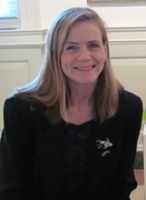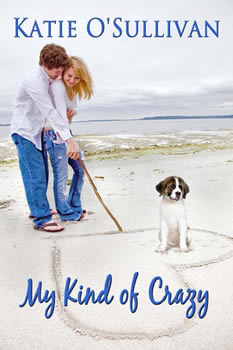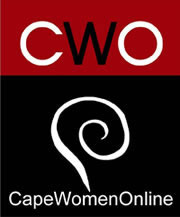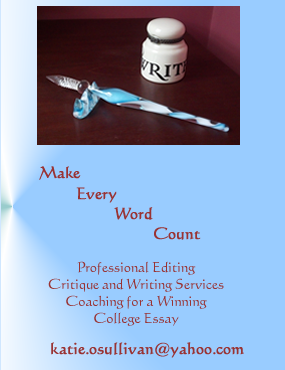CapeWomenOnline - Where Cape Women Shine
Your local venue for the women of Cape Cod to share their ideas, experiences and resources while inspiring each other in their life's journey
Inspire . Encourage . Network . Share
In her column The Write Way, author Katie O'Sullivan discusses the not-so-simple world of writing, editing and publishing.
If you have a question for Katie email her at katie.osullivan@yahoo.com
The Write Way: Sowing the Seeds to Grow a Book
by Katie O'Sullivan

Spring is the time of renewal and new growth. Time for planting seeds and nurturing them into being. I'm not just talking gardens here – spring it the perfect time to plant all kinds of new seeds in your life!
Perhaps that "seed" you want to plant takes the form of an idea for a new book. The seed could be a character name, a tricky situation, an unusual adventure, or even a full-fledged orchestrated trilogy. It's still just an idea – a seed – until you get started.
Where to begin?
Just like with planting a garden, you need the right tools and some planning to successfully nurture your book idea and help it grow into a manuscript.
The most obvious of a writer's tools is the computer on which to type your manuscript. But there are other, less obvious tools that an aspiring writer might want to take advantage of.
You might want to sign up for a Writing Class. Here on Cape Cod we are lucky to have a plethora of published authors and writing coaches who teach classes outside of traditional college classrooms. Many local community education programs offer writing classes for beginners, like Nauset Community Education or Sandwich Community School. The Cape Cod Writers Center also offers writing classes for every level of writer, from newbie to published author.
What are the benefits of taking a class? The first and most obvious is community. Writing is a lonely business, and it's helpful to have a support group to both cheer your progress and keep you going over the rough patches as you master the learning curve of a new skill.
A class also has the benefit of a teacher, who can give pointers about basics like dialogue, verb tense, and punctuation. They also offer direction on your story arc and character development, as well as more ephemeral writing aspects like hook, conflict and flow. If you don't know these words and phrases from the writer's toolbox, I strongly urge you to consider a class.
Think of "story arc" like a bell curve: you want the action to start at the beginning and rise to a crescendo before resolving itself into your happily-ever-after. The concept of "character development" is whether your main characters grow and change throughout your story, whether you are challenging your character and giving the reader someone worthy of rooting for. Your character needs to hook the reader from the very beginning and make them care about what happens next.
A critique group is another option for writers looking for the community aspect. The group setting offers a safe space among peers to road test ideas on other readers, to figure out if you're the only one out there who thinks shape-morphing robotic werewolves from Planet Gulag would really make for a blockbuster bestselling novel…or if maybe you need to shift your focus.
If you don't know a bunch of other writers in your everyday life, there are ways to find a critique group. The Cape Cod Writers Center is one resource for listings of groups that welcome new members. If you ask at the help desk of your local library, or look on their community bulletin board, most libraries have writers groups with set meeting times. There's also a monthly gathering of local Cape Cod authors called "A Book in the Hand," or ABITH. They meet at the Jacob Sears Memorial Library in Dennis once a month, and also offer critique groups. Check the website for the next meeting.
Beta readers are another important tool in an aspiring writer's toolbox. As the author, you are the "Alpha," or first, reader. The next set of eyes (be it one person or ten people) are the betas. If you read the acknowledgments of any New York Times bestseller, the author always thanks their initial, or beta, readers by name. These are the select few whom you trust to both read your baby and give you honest feedback without breaking your heart (or your will to keep writing.)
Betas play an important role in any author's life. This is a reader who will read your whole book, start to finish, and tell you where the holes are and what the character flaws are. Someone who will say, "your hero is cute enough, but kind of whiny. Make him rescue a kitten out of a tree and maybe I'll feel more sympathetic." You might open that email and scream, but in the end you know she's right.
If you go through these steps, your seed of an idea will undoubtedly blossom into a full-fledged manuscript.
My next few columns will focus on where to go from here, to nurture that initial seed and keep it growing. Now you've got a manuscript that you think will turn into the next New York Times bestseller. What do you do next?
If words like Synopsis, Query, Literary Agent, and Social Media make your stomach clench in knots, don't worry. We'll break it down into manageable steps.
But first, you need to write. Butt in chair, hands on keyboard. Because in the end, writers write.

Available at Amazon.com

FROM THE MAILBAG:
My editor and I keep disagreeing over proper names. In my memoir, I keep trying to make "Dad" capitalized, but half the time the editor tells me I'm wrong. Isn't Dad always a proper noun?
Dad is always a proper noun. But. When you write about your dad, or my dad, those aren't proper names. Think of it more as a job description. If you use a pronoun preceding the noun, you aren't using the word "dad" as a name, but more as a job description.
The same is true of the words grandmother or mom or auntie. The easiest way to check yourself is to look for the possessive pronoun. If you are claiming that person with "my" or "our," then the word become a title and not the person themselves. If you could substitute a name for the word (say, substitute "William" for "Dad") then it should be capitalized. You wouldn't say "my Barbara," just like you wouldn't say "my Mom." You would write either "my mom" or "Mom."
And as always, if you have any question about capitalization, don't rely on spellcheck. Ask your editor. She knows what she's talking about.
Got a question for our mailbag? Email me at katie.osullivan@yahoo.com
Katie O'Sullivan loves editing, writing and playing with words. She lives in Harwich with her family, and the big dogs who "make" her walk on the beach every day.
She writes romance and adventure for young adults and the young at heart. Her first young adult novel, SON OF A MERMAID, was published in 2013 by Crescent Moon Press. The sequel, BLOOD OF A MERMAID, will be published May 2014.
Her newest Cape Cod romance is MY KIND OF CRAZY, published by The Wild Rose Press in March 2014. Available now exclusively on Kindle, the world-wide all-format release is slated for July 2014.
Check the Event listings for upcoming book signings, or visit her blog for details.
For more information about working with Katie to make your words sparkle on the page, email her at katie.osullivan@yahoo.com



